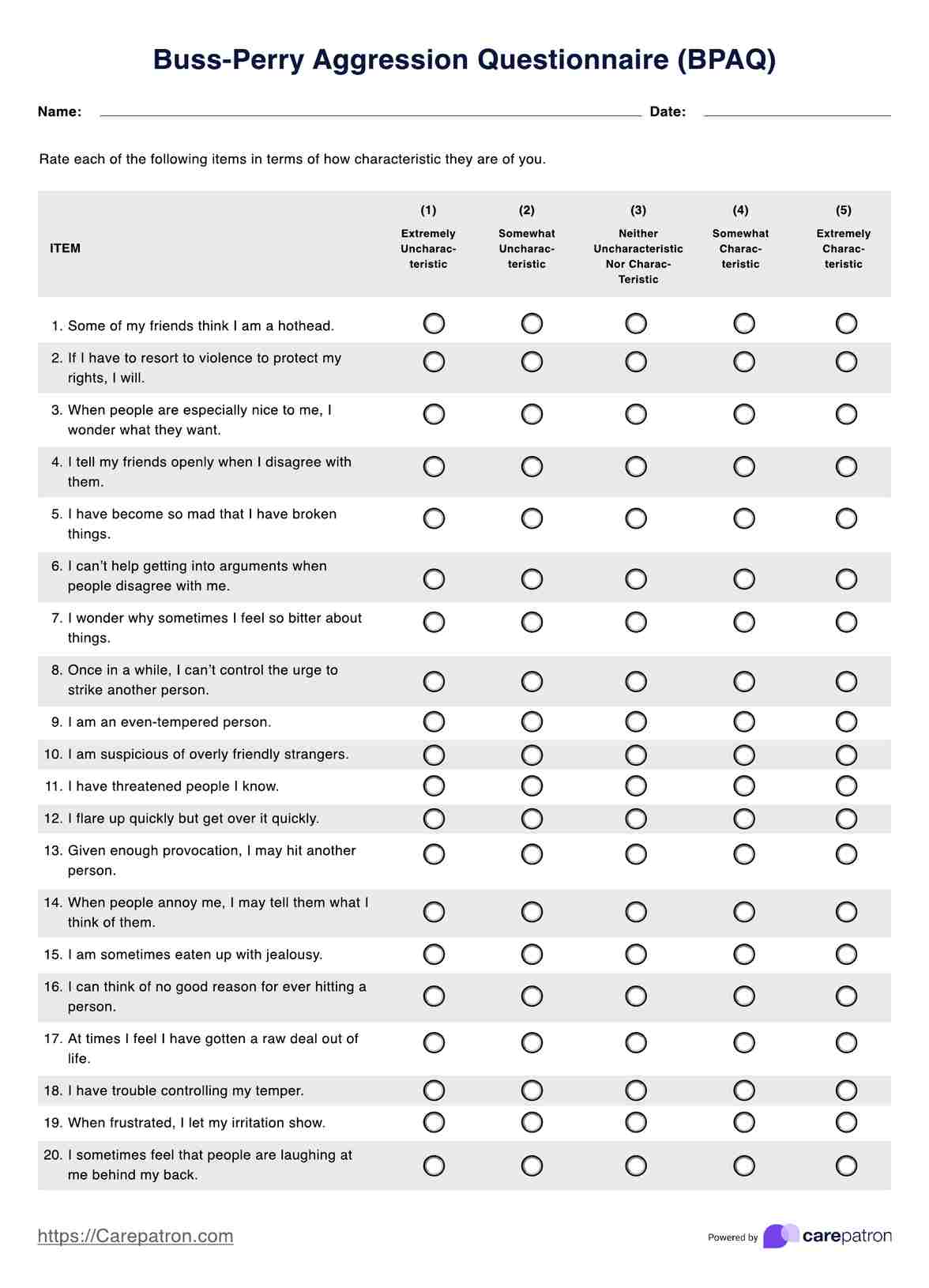Mental health professionals use the Buss-Perry Aggression Questionnaire to assess and understand their clients' aggressive tendencies and hostile behaviors.

Buss-Perry Aggression Questionnaires
Download our free Buss-Perry Aggression Questionnaire template and example. Use it to assess your client's level of aggression and hostility.
Use Template
Buss-Perry Aggression Questionnaires Template
Commonly asked questions
Individuals can complete the BPAQ within 10 to 15 minutes.
You can use the Buss-Perry Aggression Questionnaire during your client's treatment to assess their aggressive tendencies and monitor changes in their behavior. It is effective as both a baseline measure and an ongoing assessment tool throughout therapy.
EHR and practice management software
Get started for free
*No credit card required
Free
$0/usd
Unlimited clients
Telehealth
1GB of storage
Client portal text
Automated billing and online payments











